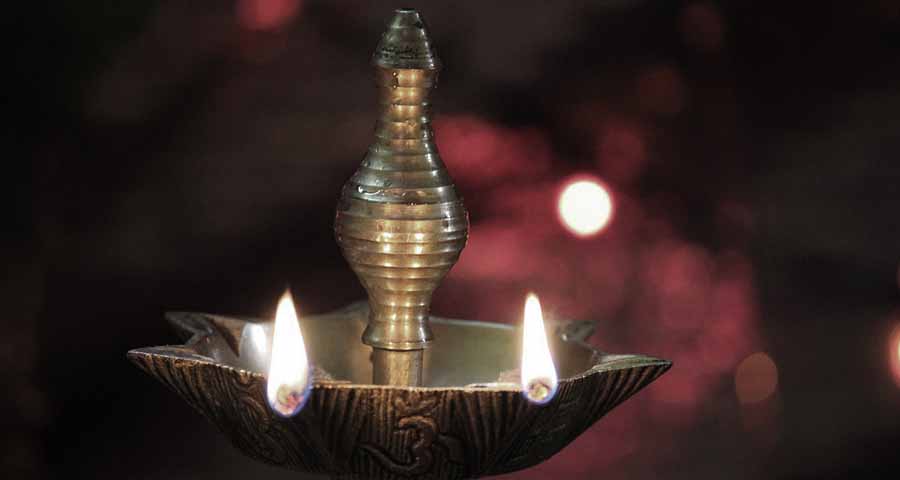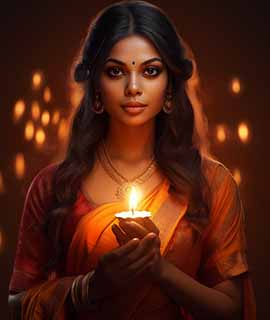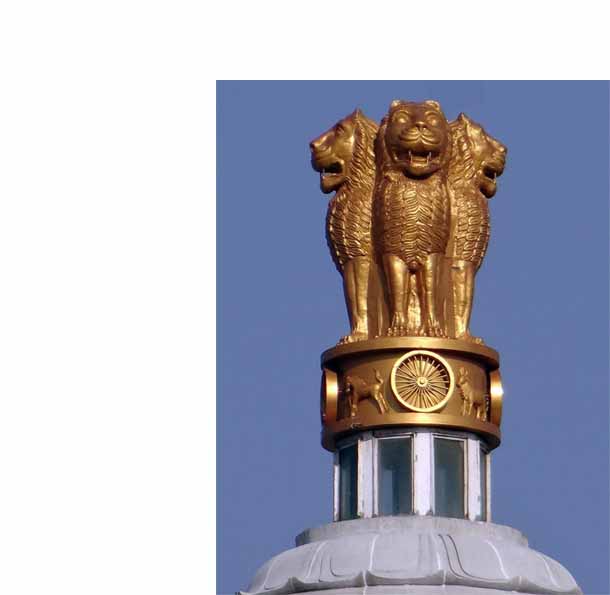
India has always been a unique land throughout its history. The deep connection between humans, nature, and the divine, as exemplified in its rich culture, defines the timeless dharma of India. While some aspects of its traditions may be dismissed as blind superstition, it is crucial to recognize the wisdom and scientific principles embedded in Indian customs. Unfortunately, the current political climate in the country tends to exploit the religious sentiments of the masses for power and financial gain, rather than preserving the integral part of Indian culture. In the past, when people lived harmoniously with nature and respected its cycles, the country flourished under the benevolent rule of enlightened monarchs who protected both the citizens and the culture. However, with the present-day display of ritualistic practices without understanding their essence, India risks losing the profound significance that once defined its cultural fabric.
Swami Vivekananda's philosophy of education emphasizes unleashing the inner strength within us, bringing out our potential. This, according to him, is the essence of true Indian education. The Indian culture has grown and evolved through the Guru-Shishya parampara, a tradition of passing down knowledge from teacher to disciple. True knowledge, according to Swami Vivekananda, is the realization of anything, and the pursuit of Brahmajnana (knowledge of the ultimate reality) is the path to complete enlightenment.
The most valuable asset for any country or society is its culture. Indian culture, distinct from any other in the world, has not been systematically studied and understood scientifically to its full extent. The scientific depth in Indian customs and rituals is often overlooked. Unfortunately, the present political scenario tends to exploit religious sentiments for power and financial gains, disregarding the integral part of Indian culture. In the past, enlightened monarchs protected both citizens and culture, creating a flourishing society in harmony with nature. However, without understanding the essence, the current display of ritualistic practices risks losing the profound significance of Indian culture.
When Western culture emphasizes the significance of the physical body, Indian culture gives importance to the soul (subtle body) when considering the profound aspects of life. This profound culture, woven into the fabric of religion, provides invaluable insights and spiritual knowledge, guiding individuals beyond materialistic pursuits and transient pleasures. However, in today's globalized world, countries and influential figures, when embracing the profound spiritual knowledge of India, often tend to commodify these treasures, diluting their essence. The spiritual knowledge of India encompasses the pursuit of both physical well-being (physical dharma) and the spiritual duties of the soul (eternal dharma).
In Indian culture, we believe that life is a result of our actions, and each individual is responsible for their own destiny. Unlike Western culture, where fate or destiny is often attributed to external forces or written in the stars, the Indian perspective emphasizes the role of one's own actions in shaping life's outcomes. The truth of Indian culture lies in recognizing that our achievements and failures are reflections of our own deeds, not mere whims of fate. The concept of dharma exists in two forms: physical or bodily dharma and the eternal dharma of the soul.
In India, we perceive life as a manifestation of karma, where individuals are responsible for their actions and their consequences. Contrary to the Western notion of fate or predetermined destiny, Indian culture asserts that individuals are the architects of their own destinies through their conscious actions. The triumph of our life, as per the Indian cultural perspective, is the result of our own actions and the manifestation of our creative thoughts. This understanding challenges the passive acceptance of fate and places the responsibility squarely on the individual.
Some of the training topics to the kids
- Indian Culture
- Core Spirituality Training
- Karma Awareness
- Dharma Awareness
- Virtues Awareness
- Moksha Awareness
- Women in Indian Culture
Before sunrise, it is recommended to perform activities such as facing the sun, offering prayers to the divine, and engaging in morning rituals. Exposing different parts of the body, such as the feet, face, and hands, to the elements is believed to invigorate the body. Sunbathing is considered an excellent way to absorb energy from the sun. These rituals, rooted in ancient wisdom, are part of the virtuous practices in Indian culture.
In the evening, after completing daily tasks, one should bathe to remove impurities accumulated during the day. The body's energy, depleted by various activities, is replenished by bathing. Rubbing the hands, feet, and face after returning from outside helps in eliminating the negative energy gathered during the day. These are just a few examples of the disciplined and scientifically oriented virtues that form an integral part of Indian culture.
Physical
Food is not just some filling substances to subside hunger, and exercise is not the artificial process of giving strain to body parts.
Mental
Feeding a lot of knowledge about various and numerous topics is not sufficient for the well-being of good mental health.
Spiritual
Traditional religious belief systems and ritual activities are for mental satisfaction not for spiritual satisfaction or well being.
The most significant value that Indian culture imparts to humanity is the concept of moksha, the ultimate liberation. Achieving liberation is considered the highest goal of human life. However, realizing this treasure requires understanding and embracing the profound teachings of spirituality and self-realization.
While moksha is the highest goal, the path to liberation involves self-discovery, renunciation of material desires, and understanding the eternal truth. Indian culture values the pursuit of knowledge, humility, and self-discipline as essential components on the path to liberation.
In summary, Indian culture encompasses a holistic approach to life, integrating physical well-being with spiritual wisdom. It emphasizes the role of individual actions in shaping destiny, challenges the passive acceptance of fate, and values virtues that contribute to both physical and spiritual well-being. The ultimate goal of liberation, moksha, is considered the pinnacle of human existence, achievable through the pursuit of knowledge and self-realization.


Features
Core Benefits
- Peace of Mind
- Inner Strength
- Creative Mind
- Body Fitness
- Self Awareness
- Spiritual Adequacy
- Sense of purpose
- True Patriotism

Following the departure of the soul, which is the consciousness of a person, after the separation from the body, death occurs. In modern medical science, it is observed that for a certain period, usually up to three minutes, the soul is still present in the body after death. During this time, various rituals are performed, and efforts are made to revive the person. After death, when the consciousness is no longer associated with the body, there is no experience of pain when the body is cremated. At that point, it is believed in Indian culture that the mind, representing consciousness, reunites with the divine, often referred to as Ishvara or Brahma.
| Age 13 to 19 | Teens | Age 20 to 35 | Younger | |
| Age 36 to 55 | Adult | Age 56 to 75 | Senior |
The soul merges with the Supreme Soul after death, and from there, it undergoes another human birth. This cycle is known as reincarnation or rebirth. By nurturing and elevating the soul, one can achieve liberation (moksha), and then the soul is freed from the cycle of rebirth, attaining eternal bliss.
